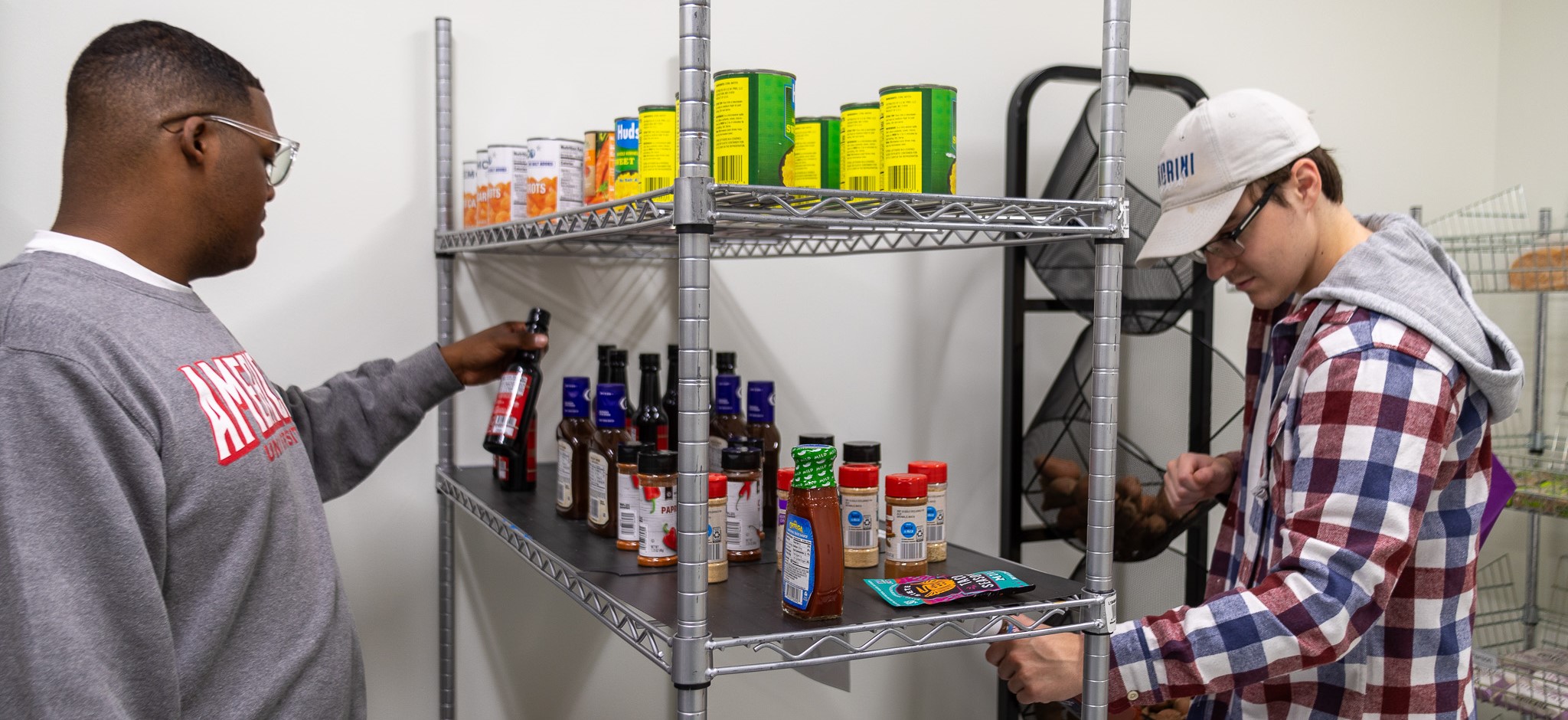State Resources
State agencies determine if you are eligible for SNAP. Learn more about each state's process below:
Monday — 12:00 pm - 7:00 pm
Wednesday — 12:00 pm - 7:00 pm
Friday — 11:00 am - 4:00 pm
Mary Graydon Center, Room 134 on a map
The Market 4400 Massachusetts Avenue NW Washington, DC 20016 United StatesThe Supplemental Nutrition Assistance Program provides food benefits to low-income households to supplement their grocery budget so they can afford the nutritious food essential to health and well-being.

If you are planning to apply for SNAP with one of the partners below, make an appointment with Taylor Allgood, the Market's director! Taylor can connect interested students with contacts at Hunger Solutions for further support.
Make an Appointment with Taylor
Students interested in applying for SNAP should reach out to one of our local partners based on their location. SNAP applications are reviewed by state agencies, and our community partners can help support applications for a state's specific process.
DC Hunger Solutions MD Hunger Solutions VA Hunger Solutions
College students can apply for the program, however, there are several additional conditions they must meet to receive SNAP. If a student is enrolled less than half time, they do not have to meet the conditions below and can apply for SNAP as normal.
First, students are not eligible for SNAP if they live in a residence hall and if they participate in a meal plan that provides the majority of their meals. (All full AU meal plans include unlimited TDR access for 4 days a week or more, covering half or more meals a week. Some of the flex meal plans may provide less than half.)
Second, students must meet at least one of the following criteria if they are enrolled more than half time:
Participate in a state or federally financed work study program.
Work at least 20 hours a week in paid employment. If you are self-employed, you must work at least 20 hours a week and receive weekly earnings at least equal to the federal minimum wage multiplied by 20 hours.
Participate in an on-the-job training program.
Are under age 18 or are age 50 or older.
Are physically or mentally unfit.
Care for a child under the age of 6.
Care for a child age 6 to 11 and lack the necessary child care enabling you to attend school and work 20 hours a week or participate in work study.
Are a single parent enrolled full-time in college and taking care of a child under 12.
Receive Temporary Assistance for Needy Families (TANF) assistance.
Are assigned to, placed in, or self-placed in a college or other institution of higher education through the Job Training Partnership Act, Trade Adjustment Assistance, Trade Readjustment Assistance, or SNAP Employment and Training.
Find out more on the Provost's Academic Rules and Regulations page.
Most likely not. You can check which immigration statuses qualify here on the Food and Nutrition Service's website.
Yes, paid internships are considered work.
If your meal plan covers more than half (11 0r more meals) of your weekly meals you are not eligible for SNAP. Please note that all of the AU meal plans include unlimited TDR access for 4 days a week or more and therefor all meal plans can cover half or more meals per week.
If you do not purchase and prepare food for at least half of your meals together, your roommates do not count as part of your household, and you would be considered an individual/household of 1.
Educational loans funded through the U.S. Department of Education (e.g., Pell grants, Perkins loans, Guaranteed Student Loans, Stafford loans) and some parts of other student grants, loans, scholarships, and fellowships are not counted as income for the purposes of determining SNAP eligibility. If you get private loans or scholarships, they may be counted as income.
Assistance to pay for normal living expenses such as room and board is not excludable and will be counted. SNAP benefits will generally not affect eligibility for most student aid.
You can find more information about SNAP eligibility on the Food and Nutrition Service's website:
State agencies determine if you are eligible for SNAP. Learn more about each state's process below: